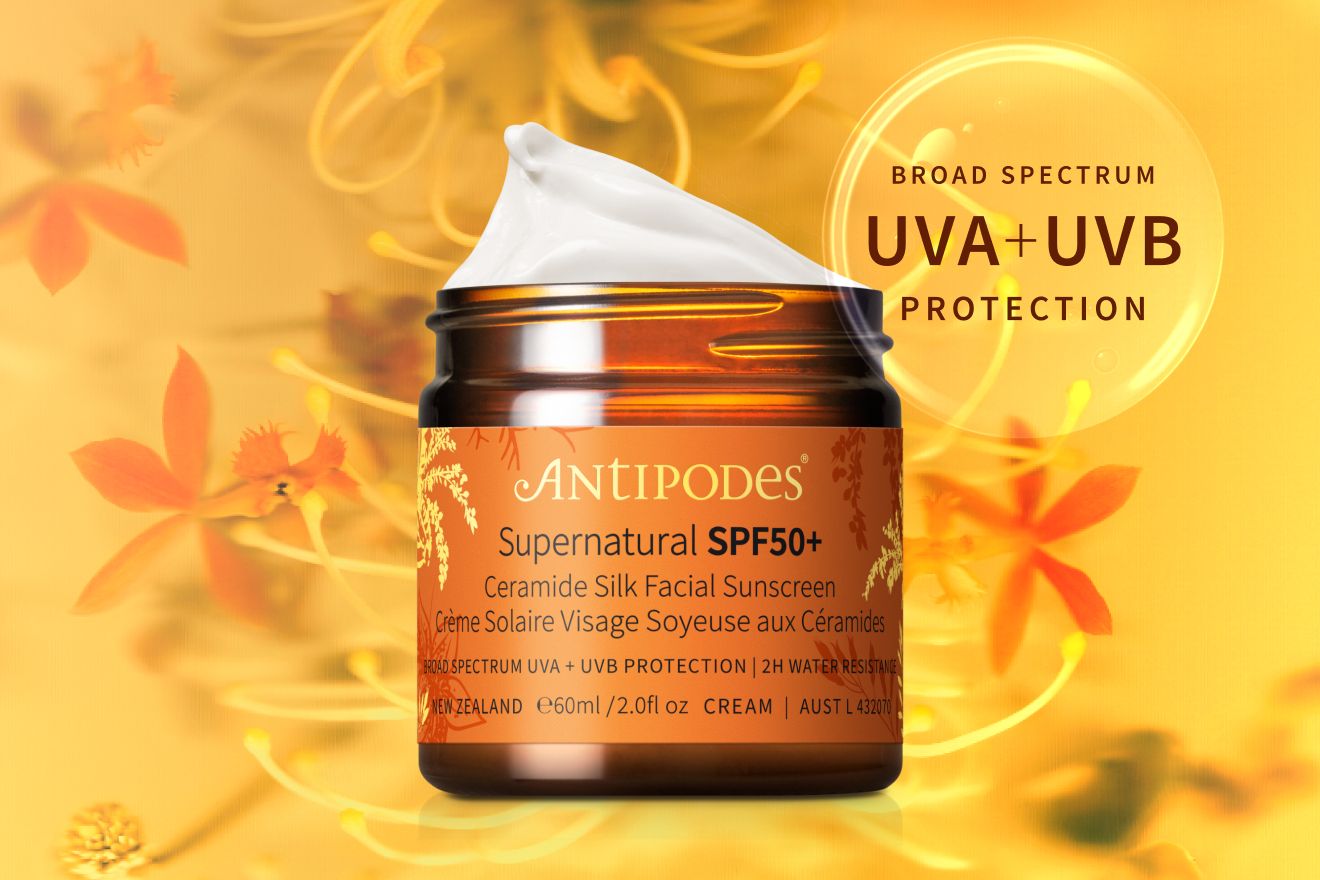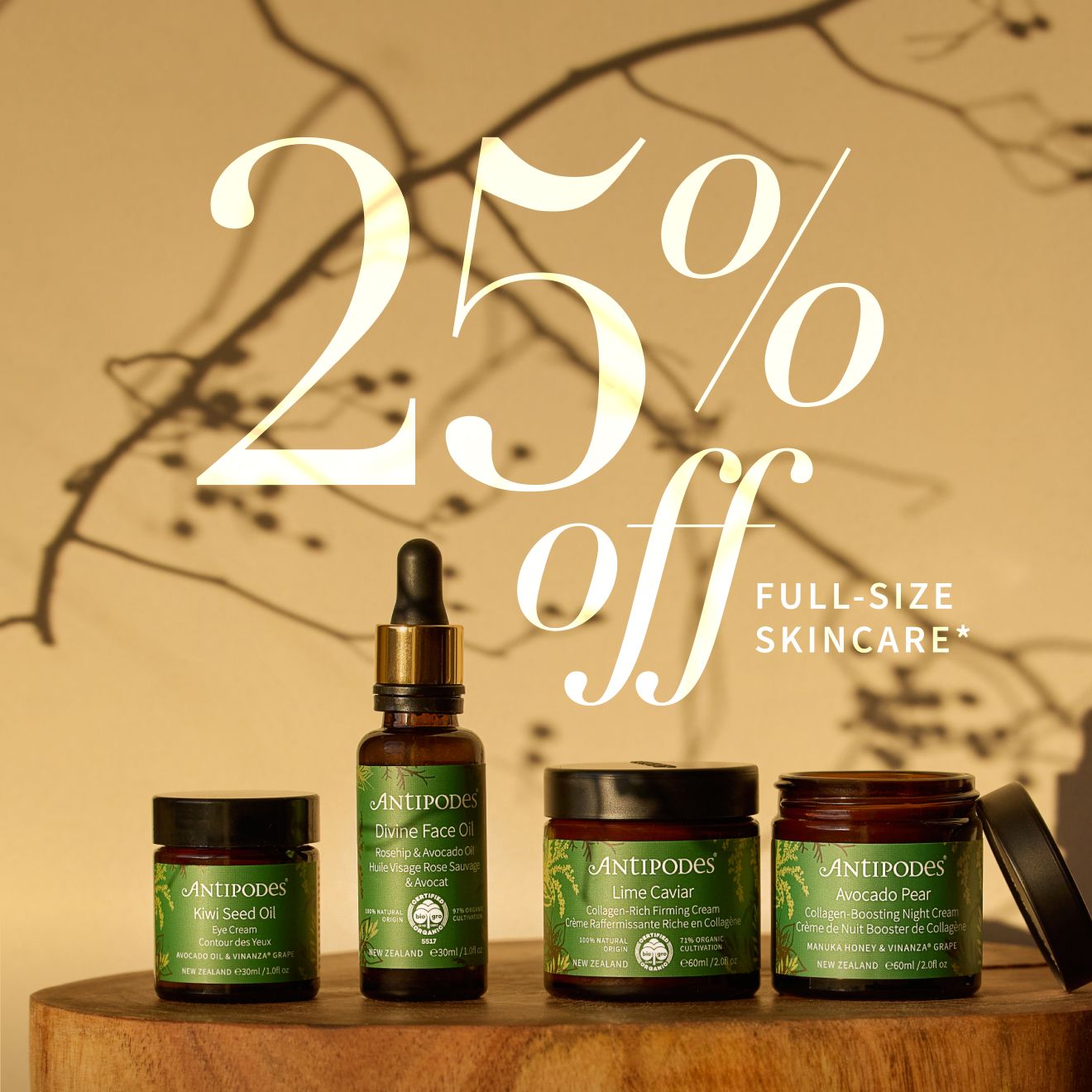
Chemical vs natural SPF the best facial sunscreen
Sunscreen is not just for the beach, it’s an essential part of your skincare regime.
Whether your favourite skincare ingredients are vitamin c, hyaluronic acid, retinol, or probiotics – SPF is required daily to add an extra layer of protection to your skin.
While UV rays are strongest during summer, there’s a proven benefit to using SPF every day of the year, even when indoors. Less exposure to UV means less signs of ageing and a drastic reduction in your chances of developing skin cancer.

There’s a lot of debate on the merits of chemical vs natural sunscreen. The fact is they both work, but differ significantly in their ingredients, how they work, and the potential impacts on your skin and the environment.
Chemical sunscreens absorb UV rays
Chemical sunscreens sink into the skin and work by absorbing UV radiation and converting it into heat, which is then released from the skin.
Chemical sunscreens are known for their lightweight texture and ease of application. However, some people may experience skin irritation or allergic reactions to ingredients found in chemical sunscreens. Because the ingredients sink into the skin, rather than sit on top, they can also lead to skin congestion which causes blemishes.

Natural sunscreens reflect UV rays
Natural sunscreens, often referred to as mineral or physical sunscreens, typically contain naturally occurring ingredients such as zinc oxide or titanium dioxide.
These minerals sit on top of the skin and work by forming a physical barrier on the skin's surface, reflecting and scattering UV radiation away from the skin.
Natural sunscreens are generally considered to be gentler on sensitive skin and less likely to cause irritation, allergic reactions, or blemishes.
They also tend to be more stable in sunlight, providing longer-lasting protection.
Natural SPF is not new, but earlier formulations of this mode of sun protection have a reputation for having an overly thick texture and leaving a white cast on the skin.
If you tried earlier versions of natural SPF products and were put off by some of its traits, we encourage you to think again.

Next generation natural SPF50+
Antipodes has long advocated for the use of a high protection SPF to complete your morning skincare regime.
After years of research and development we are proud to launch Supernatural SPF50+ Ceramide Silk Facial Sunscreen. Supernatural SPF50+ meets the strict conditions of the Therapeutic Goods Administration Australia (TGA)and the brand ethos of Antipodes.
With a glowy, luminous finish and no white cast, this next-generation zinc oxide sunscreen can be used alone or on top of your favourite Antipodes® serum and moisturiser. It provides a silky-smooth base for makeup, with no pilling.
The vegan formulation is primed with anti-ageing ceramides and nourishing plant oils, which unite to help protect the delicate skin barrier and smooth the skin. No added fragrance.
It’s extremely challenging to create a high protection SPF that feels good on the skin, whilst retaining a 100% natural-origin status. We think we’ve delivered an exceptional product that is worth the wait.

The gold standard: Broad-spectrum UVA & UVB protection
Supernatural SPF50+ Ceramide Silk Facial Sunscreen meets the criteria of the TGA – one of the world’s strictest testing standards for sunscreen production, labelling, efficacy, and ingredients.
The product is independently tested on human skin during sun exposure.
Our non-nano zinc oxide is derived from naturally occurring zinc, making Supernatural SPF50+ eco-friendly and reef safe.
Australia and New Zealand have a unique climate – with higher exposure to UV rays caused by the depleted ozone layer – so only the very best formulations can be sold there.
What makes this such a notable launch is the fact these benchmarks have all been achieved with a 100% natural-origin mineral sunscreen.

The impact of your sunscreen
One of the key differences between natural and chemical sunscreens lies in their potential impact on health and the environment. Chemical sunscreens have raised concerns due to the possible presence of ingredients that have been linked to coral bleaching and marine ecosystem damage.
In contrast, natural sunscreens containing zinc oxide or titanium dioxide are considered reef-safe and environmentally friendly.
When choosing between natural and chemical sunscreens, it's important to consider your skin type, sensitivity, and environmental concerns.
Ultimately, both types of sunscreen offer effective protection against UV radiation, but understanding their differences can help you make an informed decision that aligns your values with the needs of your skin.
Recommended product
Discover uncompromising UVA + UVB protection with this waterless, SPF50+ mineral sunscreen.
Target UV damage & premature ageing


